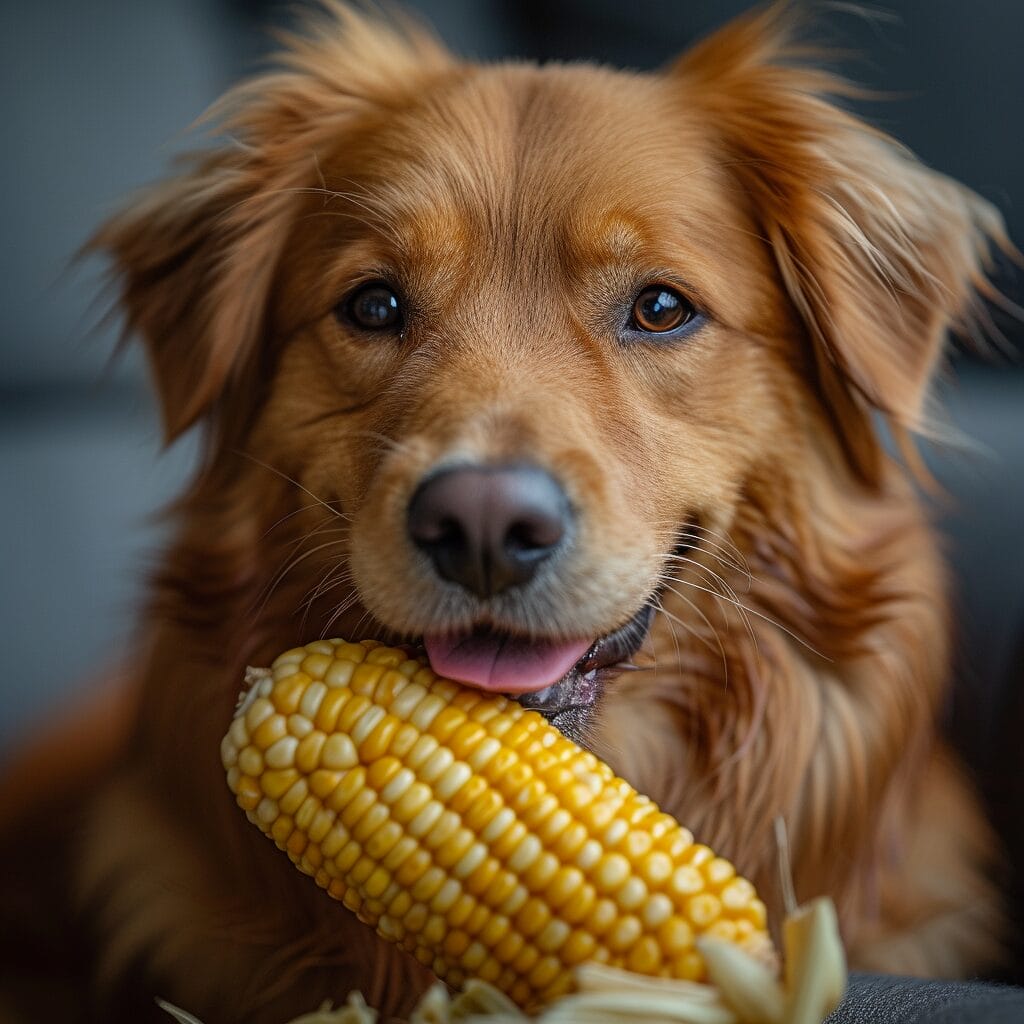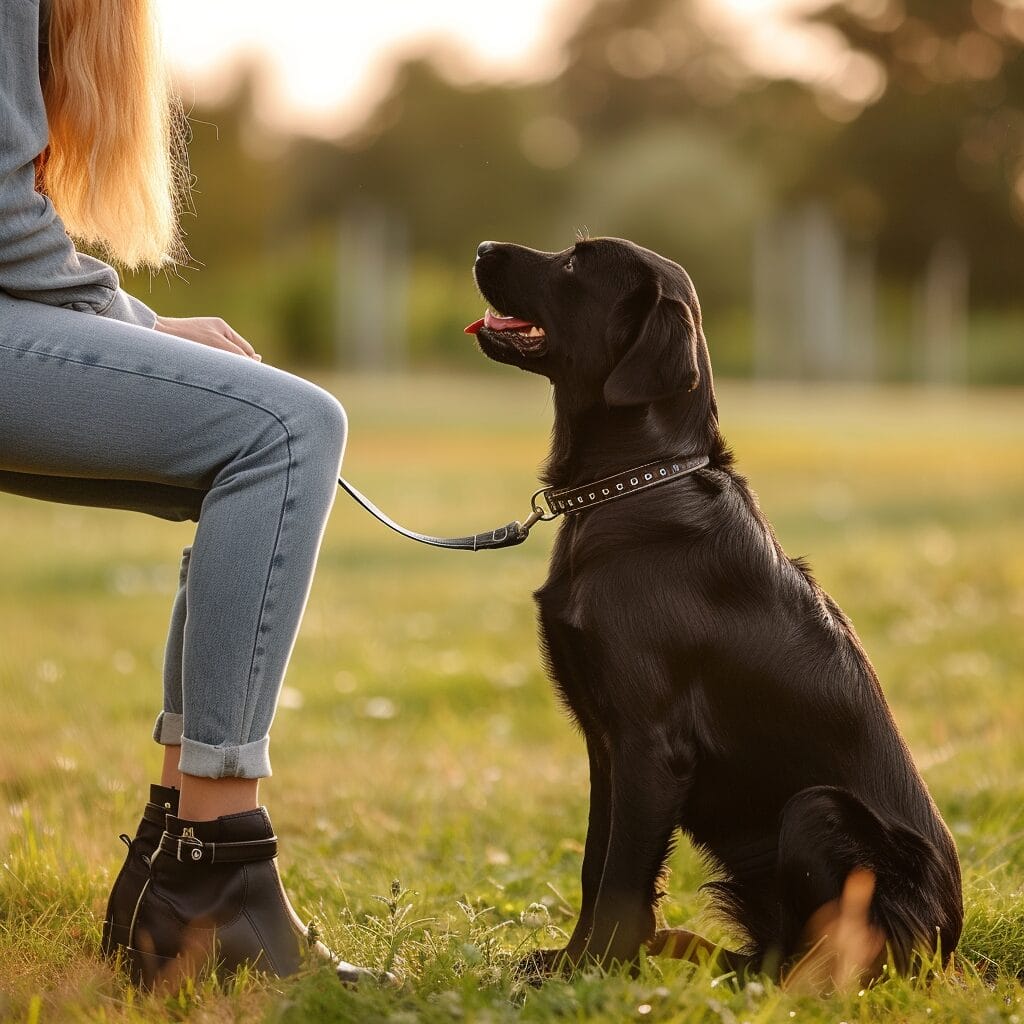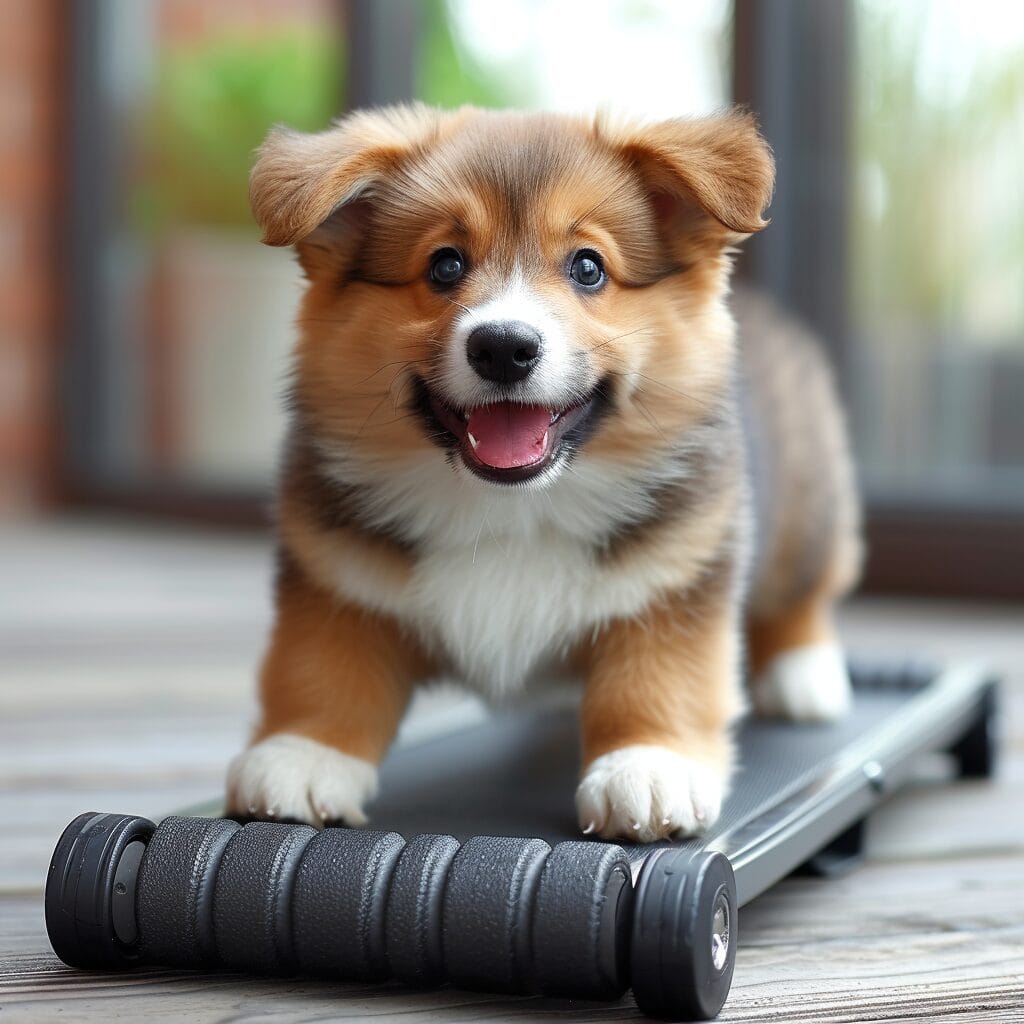Did you know that corn is present in about 65% of all dog foods? While corn can be a staple ingredient in many canine diets, the question remains: can dogs eat corn safely on its own? Understanding the implications of feeding your furry friend this popular grain is crucial for their health and well-being.
Let’s delve into the facts surrounding dogs and corn consumption to make informed decisions about what goes into your pet’s bowl.
Can Dogs Eat Corn?
Key Takeaways
- Corn can be a safe and nutritious addition to your dog’s diet: When prepared properly and in moderation, corn can provide valuable nutrients for your furry friend.
- Monitor for any signs of allergies: Keep an eye out for any allergic reactions in your dog after consuming corn, such as itching, digestive issues, or skin problems.
- Avoid feeding dogs corn chips and popcorn: These processed forms of corn can be high in salt, fats, or additives that are harmful to dogs.
- Exercise caution with corn on the cob: While dogs may enjoy chewing on corncobs, they can pose a choking hazard or lead to intestinal blockages if ingested.
- Opt for homemade corn treats: Prepare homemade cheesy corn dog treats using dog-friendly ingredients to ensure your pet’s safety and enjoyment.
- Understand the role of corn in commercial dog food: Be aware of how corn is used in dog food and consider consulting with a veterinarian to choose the best diet for your pet.
Corn’s Suitability for Dogs
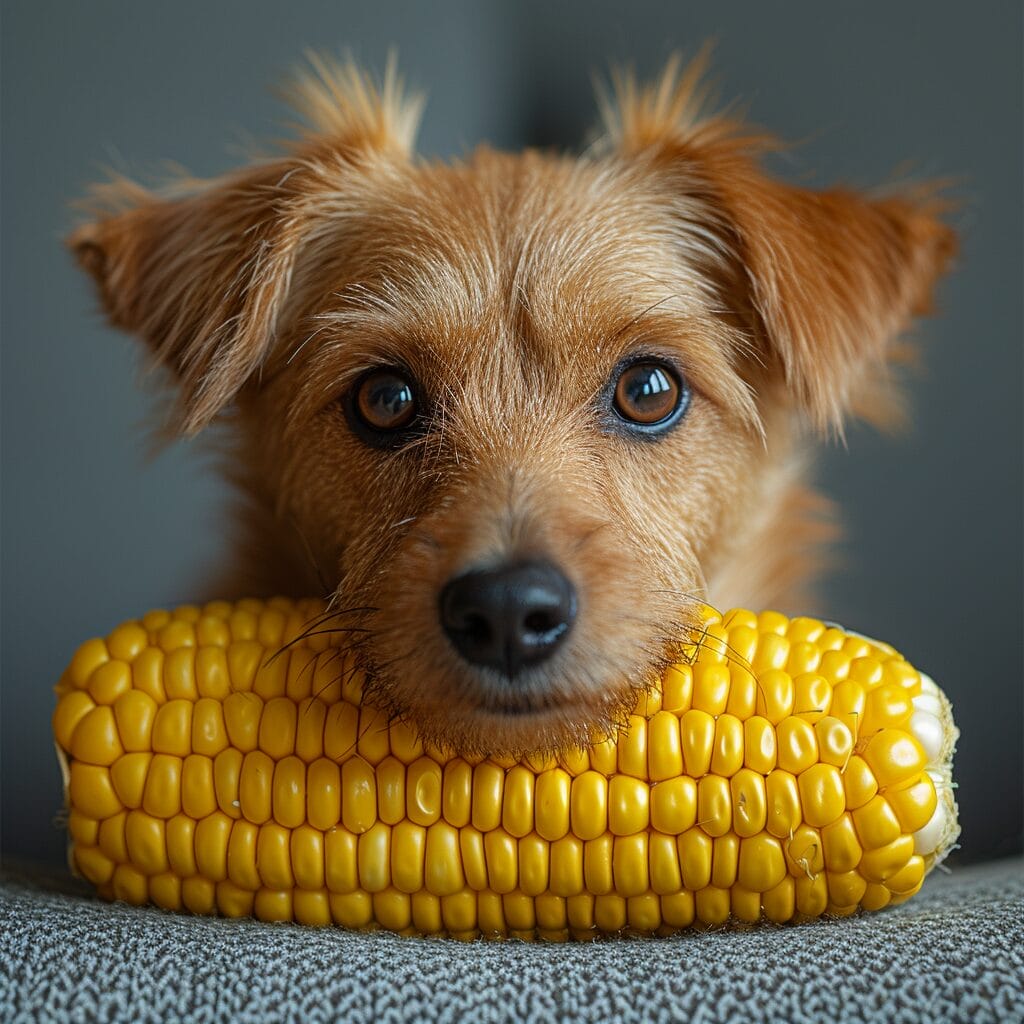
Benefits of Corn for Dogs
Corn is safe for dogs and can provide essential nutrients. It can be a valuable addition to their diet, offering vitamins, minerals, and fiber. For example, corn contains protein that supports muscle growth in pups.
Including corn kernels in your dog’s meals can aid digestion due to its fiber content. Moreover, the carbohydrates in corn provide energy for active dogs. A balanced diet with corn as an occasional treat can contribute positively to your pet’s health.
Consulting a Vet about Feeding Corn
Before introducing corn into your dog’s diet regularly, consult a vet to ensure it aligns with your pup’s dietary needs. While some dogs may benefit from the nutrients in corn, others might have allergies or sensitivities that could lead to digestive issues.
Your vet will assess whether corn kernels are suitable for your dog based on their individual health conditions and dietary requirements. They might recommend specific types of corn or suggest alternative options if they deem it unsuitable.
Nutritional Value of Corn for Dogs
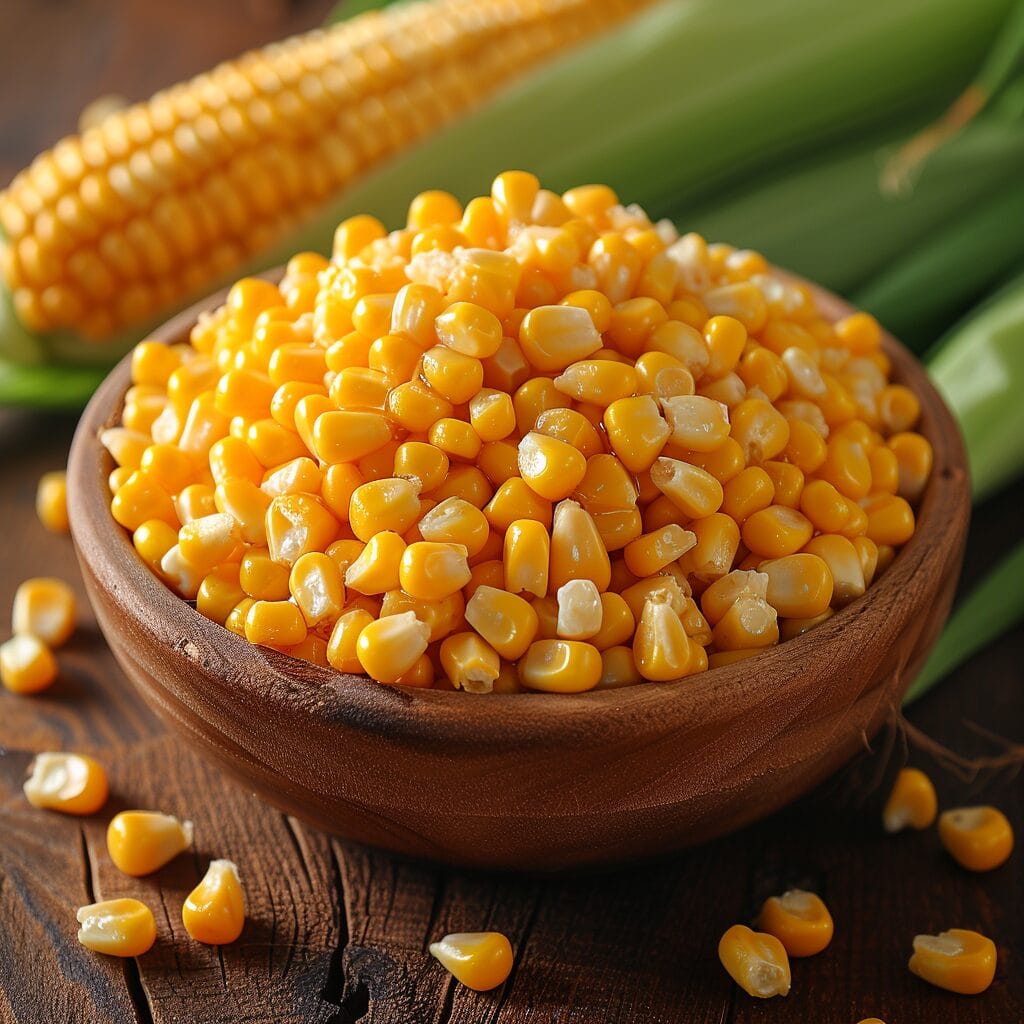
Carbohydrates and Essential Vitamins
Corn is a good source of carbohydrates for dogs, providing them with energy to stay active throughout the day. This nutrient is crucial for fueling their daily activities, whether it’s playing fetch in the backyard or going on long walks. Corn contains essential vitamins like vitamin A and B vitamins that support various functions in a dog’s body. These vitamins help maintain healthy skin, promote good vision, and aid in overall well-being.
Dogs can benefit from the nutritional value of corn as it offers a combination of nutrients that contribute to their health. The presence of minerals such as magnesium and phosphorus in corn helps support bone health in dogs. These minerals are vital for maintaining strong bones and teeth, ensuring that your furry friend stays active and playful without any discomfort.
Protein Content Contribution
The protein content found in corn plays a role in enhancing a dog’s overall nutrition. While dogs primarily require protein from animal sources like meat, incorporating plant-based proteins like those found in corn can be beneficial too. Corn provides an additional protein source that complements their diet by offering amino acids necessary for muscle development and growth.
Digestibility of Corn by Dogs
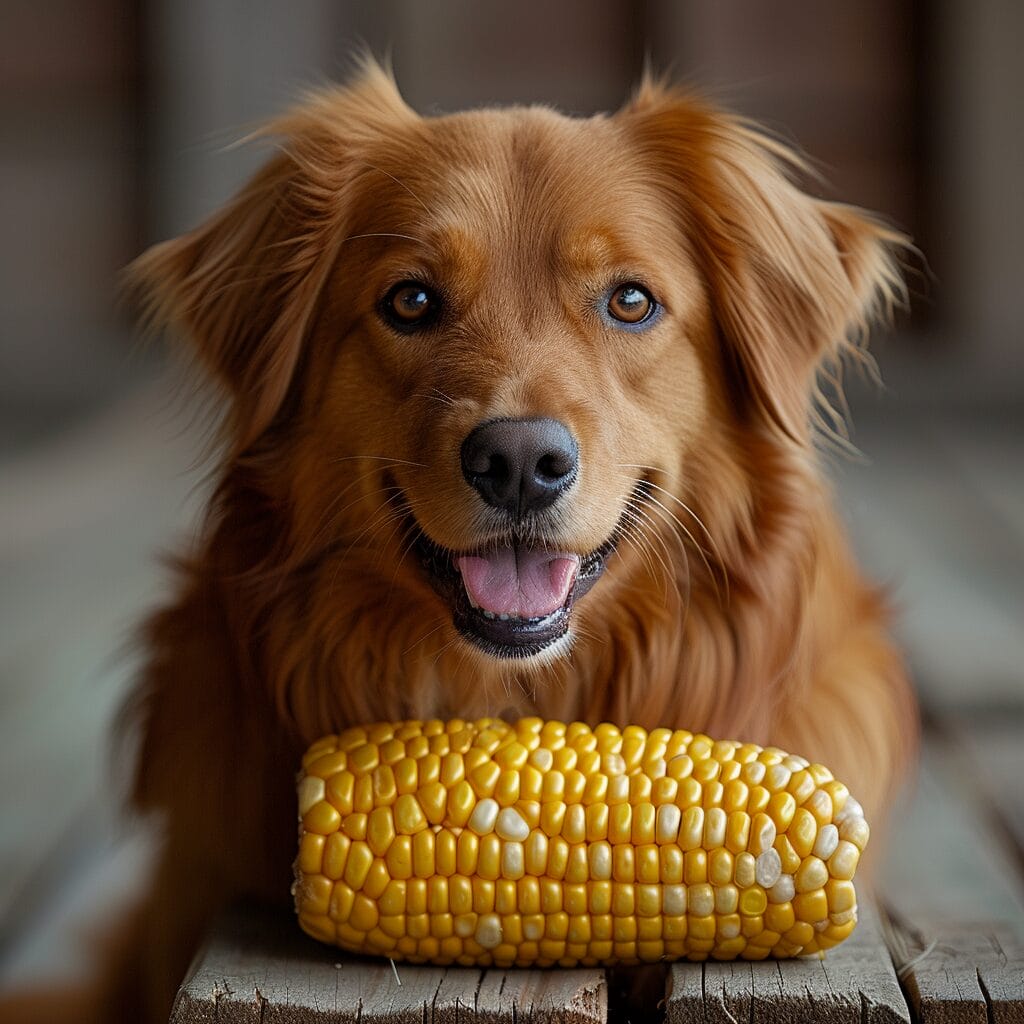
Variability in Digestibility
Many dogs can easily digest corn, but the ability to digest it varies among individual dogs. The starch, fiber, and protein content in corn can affect how well a dog digests it. Some dogs may have sensitivities or allergies to certain components of corn, leading to digestive issues.
Dogs with sensitive stomachs might struggle with digesting whole kernels of corn due to their high fiber content. However, processed forms like cornmeal or cooked corn are generally easier for most dogs to digest. It’s crucial for dog owners to observe their pets’ reactions when introducing new foods like corn into their diets.
Enhancing Digestibility
Proper cooking and processing play a significant role in enhancing the digestibility of corn for dogs. Cooking breaks down complex structures in carbohydrates, making them easier for digestion. Cooking helps soften the kernels, reducing the risk of intestinal blockages that could occur if a dog consumes raw or uncooked corn.
To improve the nutritional value and ease of digestion further, incorporating other ingredients like lean proteins alongside corn can create a balanced meal for your furry friend. This combination ensures that your dog receives adequate nutrients while minimizing potential digestive disturbances.
Allergic Reactions to Corn in Dogs
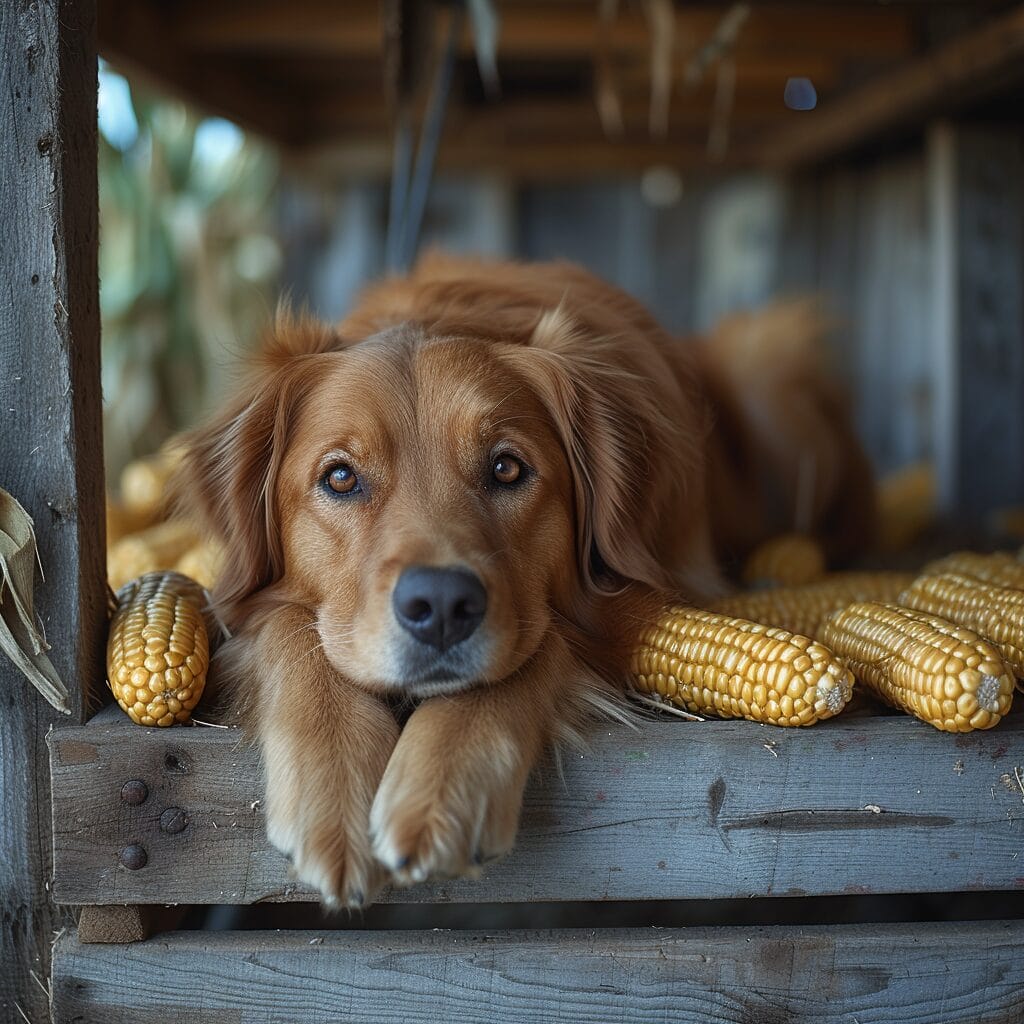
Food Allergies
Dogs, like humans, can have food allergies. Some dogs may be allergic or sensitive to corn. When a dog is allergic to corn, they might display symptoms such as itching, gastrointestinal upset like vomiting or diarrhea, or even respiratory issues.
Some dogs might not react well to corn due to their food allergies. If your furry friend shows any signs of an allergic reaction after consuming corn-based products, it’s crucial to consult with a veterinarian promptly for proper diagnosis and guidance.
Seeking Veterinary Advice
If you notice your dog exhibiting unusual behaviors after eating food containing corn, it could be indicative of an underlying allergy issue. Consulting with a veterinarian is essential in these situations. They can help determine if the symptoms are indeed related to corn allergies and provide appropriate treatment options.
Seeking professional advice from a vet is critical for accurate diagnosis and tailored care plans. Veterinarians can conduct tests and examinations that will help pinpoint the exact cause of your dog’s discomfort.
Safe Feeding Practices for Corn and Dogs
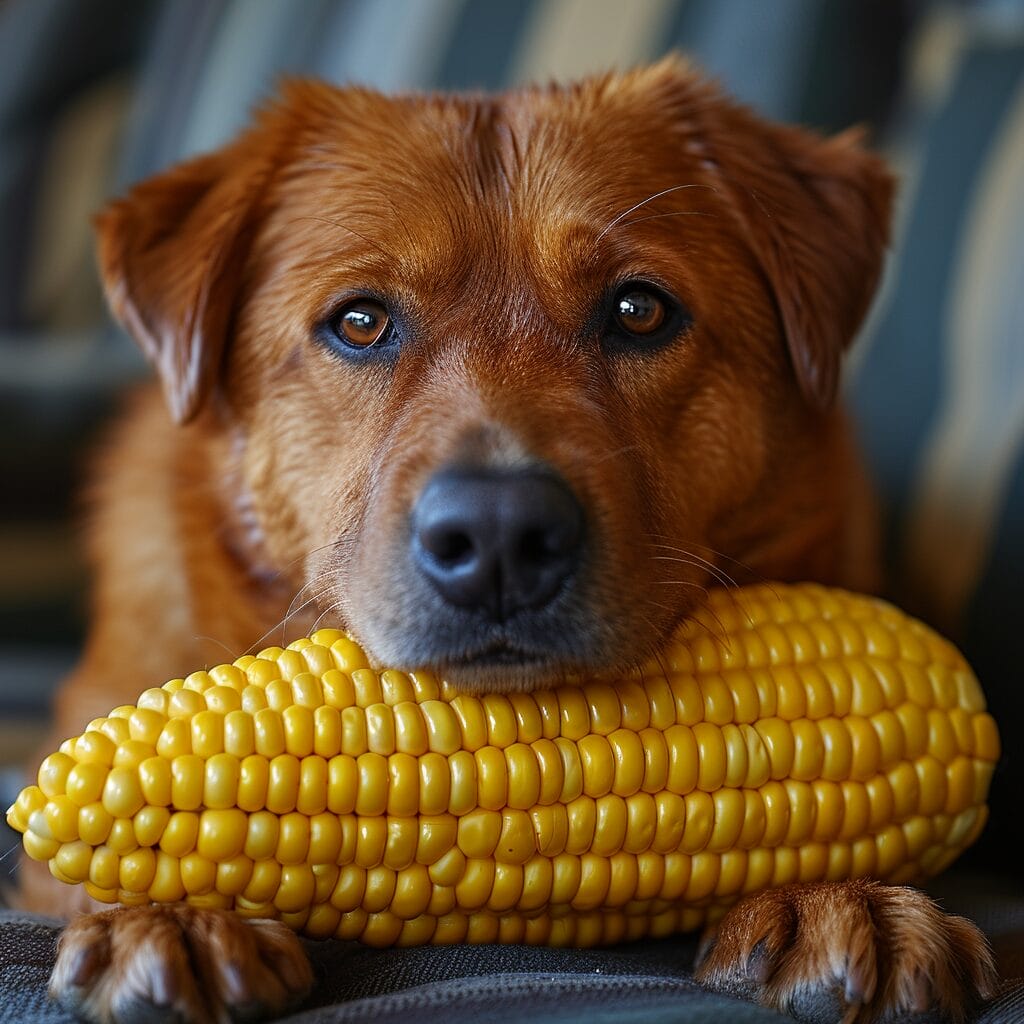
Moderation in Feeding
Dogs can eat cooked corn as part of a balanced diet, but it’s crucial to do so in moderation. Including small amounts of corn in your dog’s meals can provide them with essential nutrients like fiber. However, overfeeding dog corn may lead to digestive issues like stomach upset or diarrhea.
It’s important to remember that while corn for dogs can be a nutritious addition, it should not replace their regular food. Always consult with a veterinary nutritionist or your vet if you’re unsure about how much corn is appropriate for your pet.
Avoiding Harmful Additives
When offering corn to your furry friend, steer clear of products containing added salt, sugar, or seasonings. These additives are not suitable for canine consumption and might harm your pet’s health. Opt for plain cooked corn without any extra flavorings when preparing this treat for your dog.
Some commercial pet foods may contain corn, but always check the ingredients list before purchasing these products. Look out for any harmful additives that could be present alongside the corn, as these could be detrimental to your dog’s well-being.
Risks of Dogs Eating Corn Chips and Popcorn
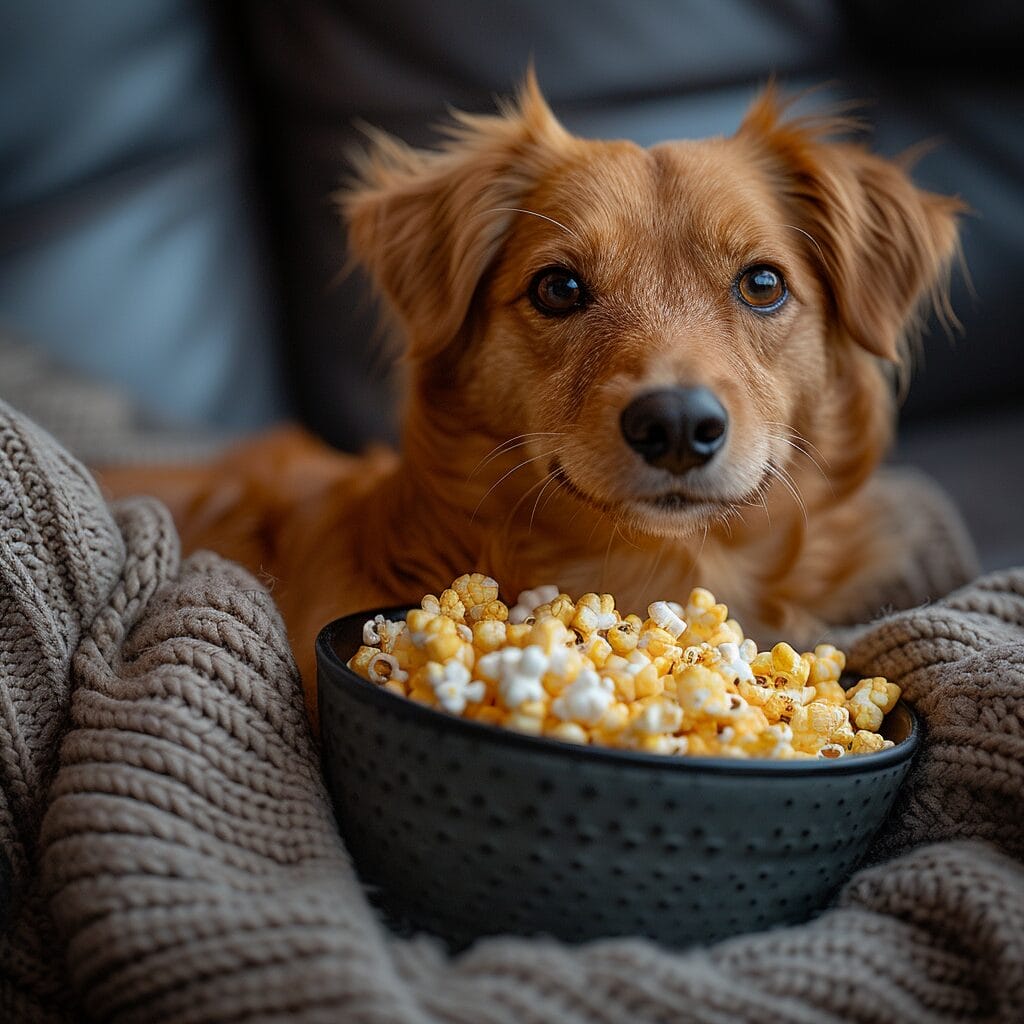
High Salt and Fat Content
Dogs should not eat corn chips or popcorn due to their high salt and fat content. These snacks can lead to health issues like obesity in dogs. Consuming foods with high salt content can be harmful to a dog’s overall health.
Consuming large amounts of these snacks can cause digestive problems for dogs. The excess fat in corn chips and popcorn is unhealthy for dogs, potentially leading to weight gain and other related health issues. It’s essential to prioritize healthy dog foods over salty, fatty snacks.
Pros:
- Healthy dog foods
Cons:
- High salt and fat content
- Digestive problems
- Obesity risk
Harmful Additives and Seasonings
The additives and seasonings found on corn chips or popcorn are not suitable for canine consumption. Ingredients like garlic powder, onion powder, or artificial flavorings commonly found on these snacks are toxic to dogs. Even small amounts of these substances can cause adverse reactions in dogs.
When considering feeding your dog treats, it’s crucial to opt for healthier options specifically formulated for them instead of sharing human food like corn chips or popcorn. By avoiding such snacks, you reduce the risk of exposing your furry friend to harmful additives that could potentially harm their health.
Key Information:
- Avoid ingredients like garlic powder or onion powder.
Feeding Dogs Corn on the Cob and Corncobs Safety
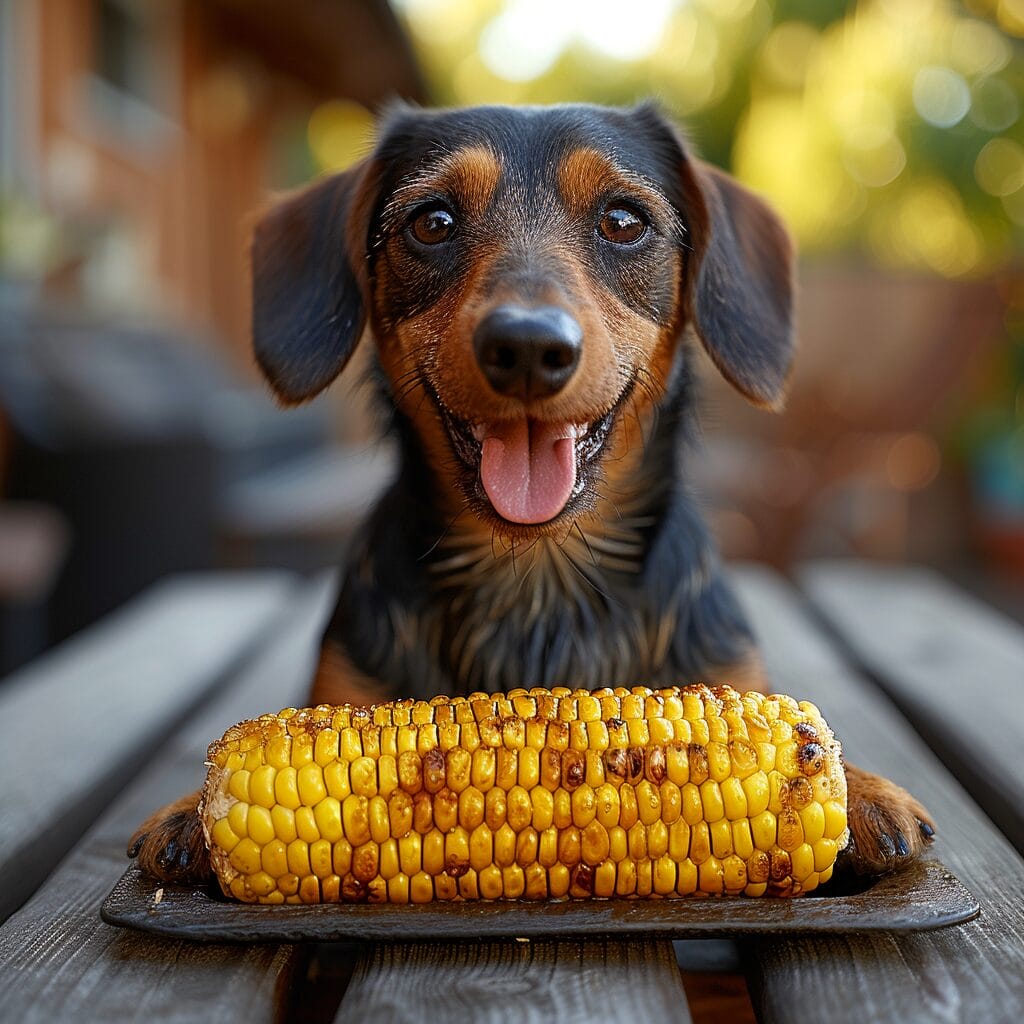
Why Dogs Shouldn’t Have Whole Corn on the Cob or Corncobs
Feeding dogs whole corn on the cob or corncobs is not recommended. Dogs can choke on corn cobs due to their cylindrical shape and size, posing a serious risk. Moreover, these items may lead to intestinal blockages in dogs when ingested.
When dogs consume whole corn on the cob, they might try to swallow it without properly chewing it. This can result in pieces getting lodged in their throat, causing choking hazards. If swallowed, the hard texture of corncobs can cause obstructions in a dog’s digestive system.
Safely Feeding Corn Kernels to Your Dog
To ensure your dog enjoys corn safely and without any risks of choking or blockages, always remove the kernels from the cob before feeding them to your furry friend. By doing this, you eliminate potential dangers associated with whole cobs while still allowing your pet to benefit from essential nutrients like vitamins found in corn kernels.
Pros:
- Removing kernels reduces choking hazards
- Allows dogs to enjoy vitamins found in corn
Cons:
- Extra step required before feeding
- Potential mess when removing kernels
When preparing fresh corn for your dog’s consumption, take extra care during this process by ensuring all kernels are removed completely from the cob. This simple step significantly minimizes any risks associated with feeding corn to your beloved pet.
Homemade Cheesy Corn Dog Treats Preparation
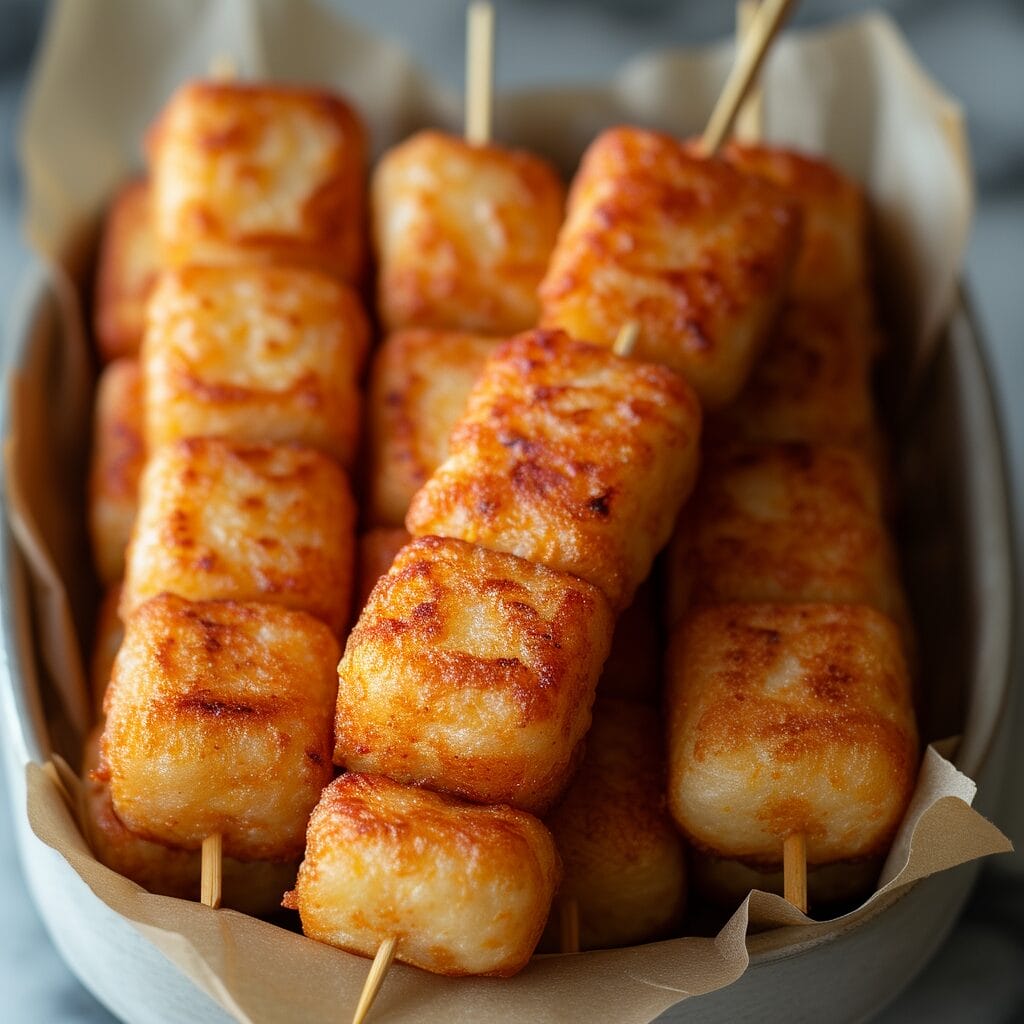
Making Homemade Cheesy Corn Dog Treats
Dogs can enjoy homemade cheesy corn dog treats as a tasty and nutritious snack. When preparing these treats, it’s crucial to choose dog-friendly ingredients and avoid harmful additives like onions or garlic. Opt for safe cooking methods such as baking or dehydrating the treats.
Homemade cheesy corn dog treats are not only delicious but also provide essential nutrients for your furry friend. By using fresh ingredients, you can ensure that your dog receives a healthy snack free from harmful substances. For example, when making these treats, consider incorporating frozen corn kernels, cheese, and whole-grain flour instead of processed products.
Ensuring Safe Consumption
To guarantee the safety of homemade cheesy corn dog treats, avoid using additional ingredients that could be harmful to dogs’ health. Ingredients like butter or salt should be used in moderation or omitted entirely from the recipe to prevent any adverse effects on your pet’s well-being. It is essential to remember that while corn itself is safe for dogs in small amounts, other components may not be suitable for canine consumption.
Pros:
- Provides a tasty and nutritious snack option
- Allows control over ingredients used
- Can tailor the recipe based on dietary restrictions
Cons:
- Need to ensure all ingredients are dog-friendly
- Requires careful monitoring during preparation
- May not be suitable for dogs with specific dietary sensitivities
When creating homemade cheesy corn dog treats, focus on incorporating high-quality sources of nutrition rather than relying on processed items commonly found in commercial pet snacks. By doing so, you can enhance the nutritional value of the treat while minimizing potential risks associated with store-bought products.
Understanding the Use of Corn in Dog Food
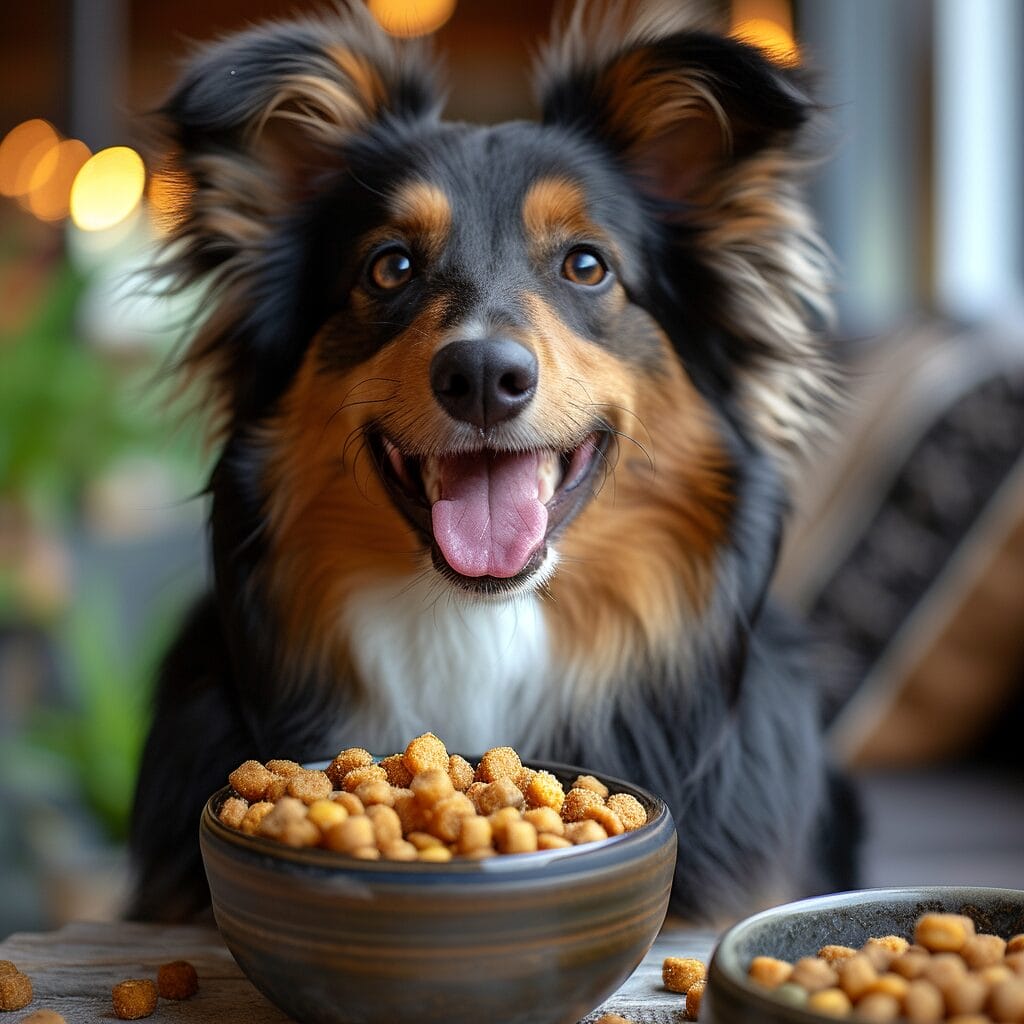
Common Ingredient
Corn is frequently found in various commercial dog foods, serving as a primary ingredient. It acts as a valuable source of carbohydrates and energy for our furry friends.
Many reputable brands utilize corn in their recipes, ensuring it meets high-quality standards to provide essential nutrients for dogs.
Quality Variability
The quality of corn used in dog food can differ significantly among brands. Opting for well-known brands that prioritize high-quality ingredients is crucial when selecting dog food containing corn.
It’s essential to read labels carefully to ensure the corn used is not just a filler but offers nutritional value beneficial to your pet’s health.
Final Remarks
You’ve now uncovered the truth about dogs and corn. Remember, not all dogs react the same way to corn, so keep an eye out for any unusual symptoms when introducing it to your furry friend. Always consult with your vet before making significant changes to your dog’s diet.
Corn can be a tasty treat if given in moderation and prepared safely. So, next time you’re munching on some corn, feel free to share a nibble with your loyal companion!
Frequently Asked Questions
Can dogs safely eat corn as part of their diet?
Yes, dogs can eat corn in moderation. It offers some nutritional benefits like fiber and vitamins. However, it should be served plain and cooked to avoid potential digestive issues.
Is corn a highly digestible food for dogs?
Corn is generally considered digestible by most dogs when cooked properly. While some may have trouble digesting whole kernels or corncobs due to the cellulose content, processed forms like cornmeal are easier on their stomachs.
Are there risks associated with feeding dogs corn chips or popcorn?
Feeding dogs corn chips or popcorn is not recommended due to high salt and fat content, which can lead to health issues like obesity and pancreatitis. Additives such as seasonings may be harmful.
How should I serve corn to my dog safely?
When serving your dog corn, ensure it’s plain without any seasoning or butter that could upset their stomach. Cut the kernels off the cob before offering them to prevent choking hazards and monitor for any adverse reactions.
Can I incorporate homemade cheesy corn treats into my dog’s diet?
Homemade cheesy treats made from safe ingredients can be a tasty occasional snack for your furry friend. Just ensure the cheese used is suitable for dogs in limited amounts to avoid gastrointestinal problems from lactose intolerance.

